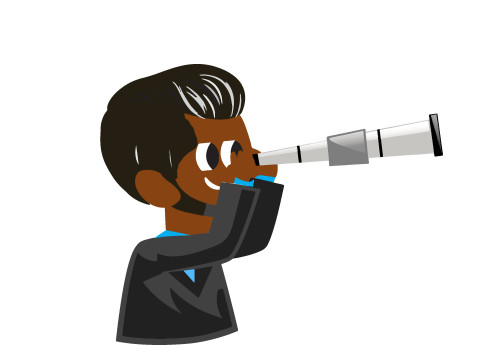Most of us are no strangers to experiencing feelings of overwhelm and disruption caused by our own thoughts, commonly understood as overthinking. Research shows we are becoming more anxious as a nation, and it’s no wonder, given the various external factors such as the cost-of-living crisis and global political conflict that have taken place over the past couple of years.
While a certain amount of overthinking can be constructive, it has the potential to quickly consume us and, in extreme cases, can have a detrimental effect on our mental health and work performance. Overthinking can also lead to tensions within teams, causing you to over-analyze actions of yourself or others or check up on people more frequently. Let’s face it: nobody likes being micro-managed.
While many factors influence our individual causes of overthinking, it’s easier to stay in control when we have a deeper understanding of why we are overthinking.
Firstly, how do we define ‘overthinking’?
Research shows that overthinking – whether it’s in our personal or professional lives – can have serious effects on our well-being and mental and physical health. There’s a fine line between what constitutes constructive critical thinking to make more informed decisions versus overthinking. Critical thinking typically revolves around a clear purpose, driven by logic and with a clear outcome, while overthinking tends to be the polar opposite of this, with many different outcomes and possibilities that make it difficult to see the clear path.
What causes our brains to overthink?
Overthinking is often triggered by change and uncertainty – of which we have all experienced a lot over the past few years. And as we all continue to navigate change in an ever-evolving workplace, a whole new set of anxieties have begun to settle in for both leaders and employees. For example, an increase in virtual communication tools has removed the ability to read the expressions and body language of co-workers, leaving room for uncertainty around interpersonal relationships with co-workers.
Outside of the day-to-day, ongoing global layoffs have resulted in heavier workloads, more ambiguity, and greater uncertainty, leaving some to obsess about all possible scenarios and outcomes beyond their control. Many leaders are now also concerned and anxious about how hybrid and “return to office” policies will impact their workforce.
When we allow ourselves to overthink, it can feel like a weakness. Your inner critic can be harsh but is also usually trying to protect you – often from fear of failure or shame.
How can we identify when we are overthinking?
Understanding overthinking is key to managing it. By identifying when it happens, you can rationalize your thoughts to manage the outcome. Overthinking tends to manifest itself in three main ways: rumination, worrying, and decision-making.
Rumination involves repetitive thinking or dwelling on negative feelings, which might result from a situation at work when made a mistake or forgot something important. The memory of this is triggered in our brains causing ‘flashbacks’ that can come through at any time of day or night, stopping us in our tracks or disrupting our concentration.
Worrying, in the context of overthinking, is spending more than necessary time considering things that are in the future. It’s helpful when it leads to action, but most of the time, we tend to worry about things that are out of our control.
The more practical and in-the-moment way we can overthink is when making decisions. This can happen when we want to make the best decision possible, so we exhaust all possibilities to make sure we do, causing us to overthink the details that are often insignificant in the bigger picture.
Et vero doloremque tempore voluptatem ratione vel aut. Deleniti sunt animi aut. Aut eos aliquam doloribus minus autem quos.










Georgia Reader Reply
Et rerum totam nisi. Molestiae vel quam dolorum vel voluptatem et et. Est ad aut sapiente quis molestiae est qui cum soluta. Vero aut rerum vel. Rerum quos laboriosam placeat ex qui. Sint qui facilis et.